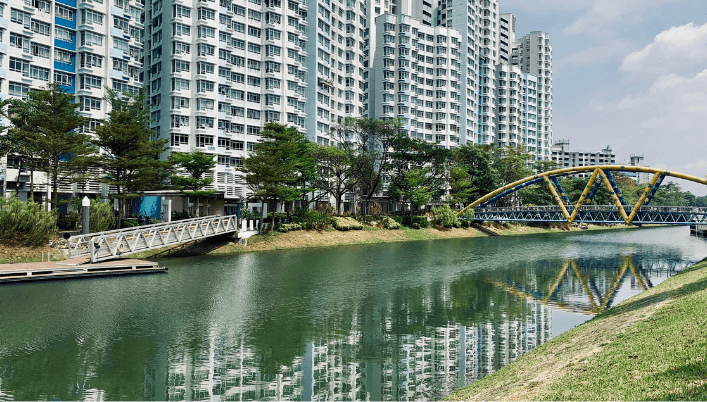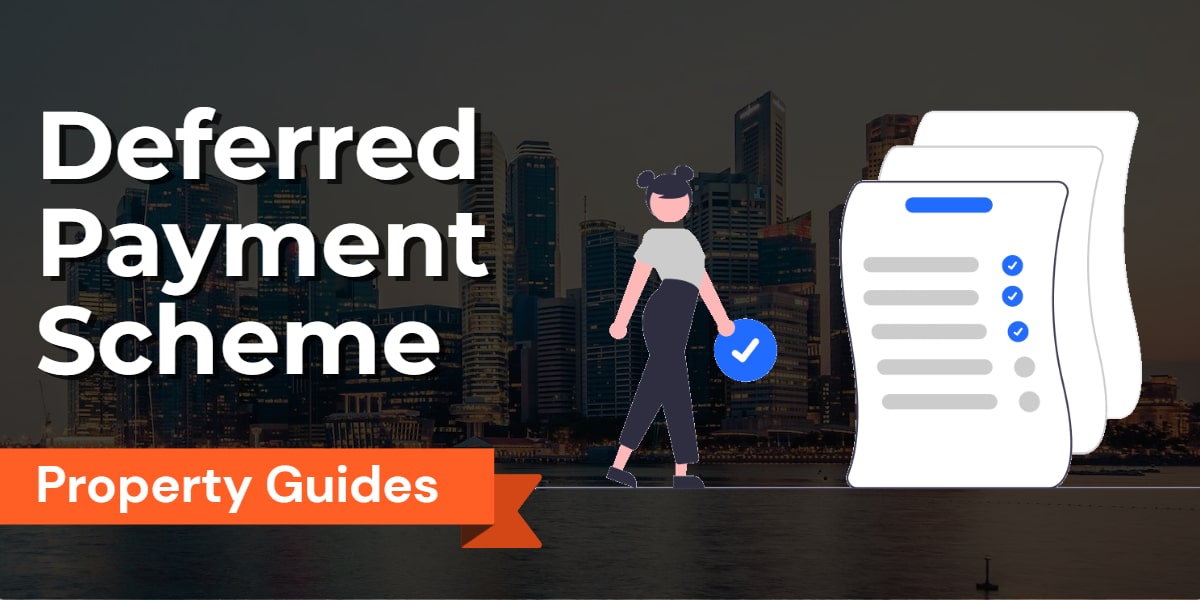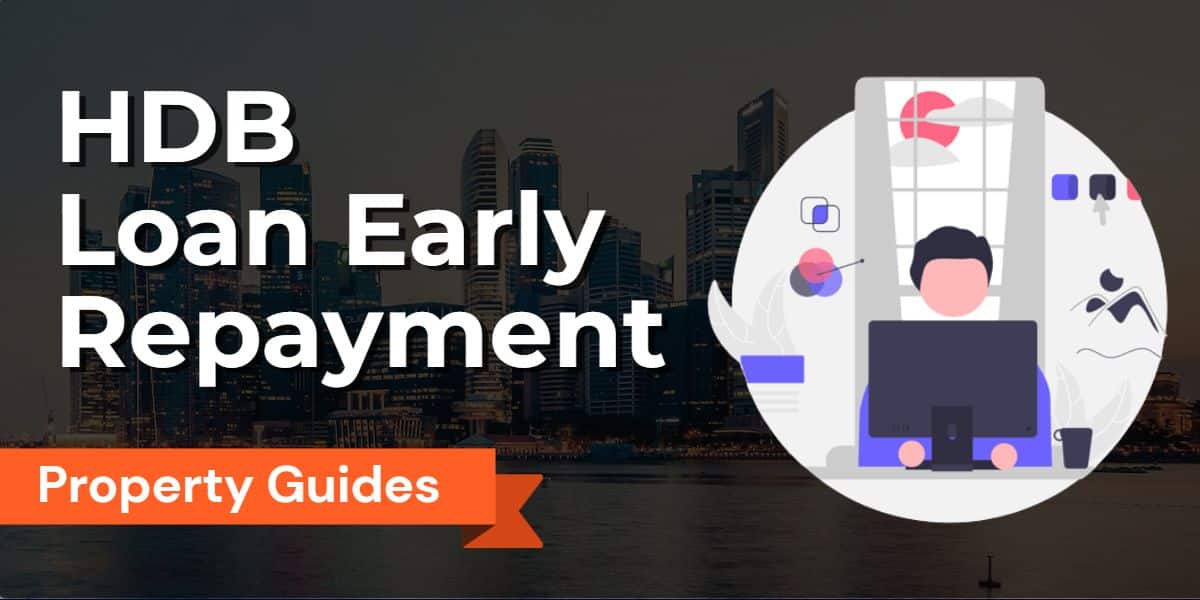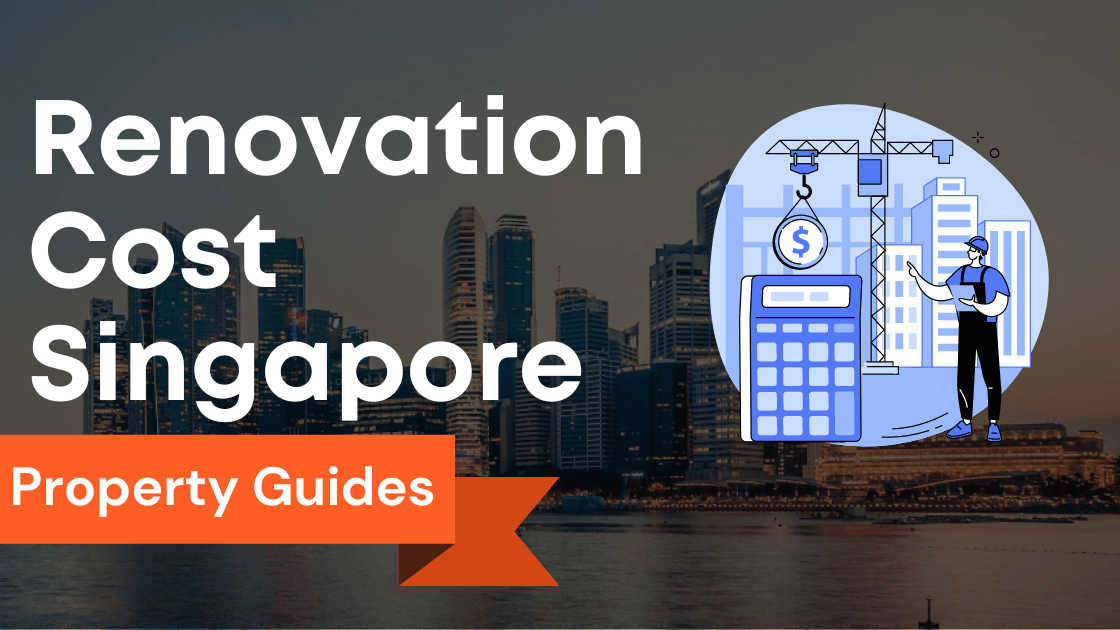
Step into the world of ABSD Trust – a revolutionary approach to property transactions.
Navigate the intricate landscape of Additional Buyer’s Stamp Duty (ABSD) with finesse and strategy.
Discover how ABSD Trust empowers you to optimize property ownership, minimize costs, and ensure compliance.
Delve into trustee obligations, beneficiary dynamics, and the future of this evolving landscape.
Join us on this enlightening journey through ABS Trust, where knowledge becomes your compass, guiding you toward informed property decisions.
Key Takeaways
- ABS Trust Definition: ABS Trust, or Additional Buyer’s Stamp Duty Trust, facilitates the transfer of residential properties subject to ABSD in Singapore. ABSD is a tax on property transactions involving second residential properties.
- Trust Arrangement: ABS Trust involves transferring properties into a trust arrangement, holding them on trust for the buyer while adhering to ABSD requirements set by the government.
- Eligibility Requirements: Specific requirements exist for using ABS Trust. The property must be residential, and the buyer should qualify for ABSD remission. Proper execution and registration of the trust instrument are also necessary.
- ABSD in Property Transactions: ABS Trust is significant in the Singapore property market, allowing property transfer without upfront ABSD payment. It provides a solution for buyers and sellers subject to ABSD.
- Trust Considerations: When dealing with ABS Trust, the trust instrument must comply with ABSD regulations. Trustee obligations, property management, and reporting responsibilities are crucial for successful implementation.
- IRAS’s Role: The Inland Revenue Authority of Singapore (IRAS) administers ABSD refunds and remission. Buyers and housing developers can claim remission based on specific eligibility criteria.
- Trustee Responsibilities: Trustee-managers hold responsibilities for trust properties. They manage maintenance, rental income, and property transactions, acting in the beneficiaries’ best interests.
- Ownership Structures: ABS and trust ownership differ. ABS ownership involves direct property ownership, while trust ownership transfers the property to a living trust.
- Beneficiary Ownership: Beneficiaries in trust arrangements have rights to trust assets, such as receiving income and occupying the property. They must fulfill obligations like complying with remission deadlines.
- Future Outlook: The future outlook involves analyzing changing ABS regulations and their impact on trust-based property ownership. Innovative strategies are essential to adapt to evolving regulations.
Introduction to ABSD Trust and its Importance in Property Transactions

What is ABS Trust, and why is it essential in property transactions?
ABS Trust refers to the Additional Buyer’s Stamp Duty (ABSD) Trust, which allows for transferring residential properties subject to ABSD.
ABSD is a tax imposed on certain property transactions in Singapore, particularly those involving acquiring second residential properties, and must be made to iras.
How does ABS Trust differ from other property transactions?
ABS Trust differs from other property transactions as it involves the transfer of residential properties into a trust.
This trust as a beneficiary arrangement serves as a means to hold the property in confidence for the buyer while complying with the ABSD requirements set by the Singaporean government.
Are there any specific requirements for using ABS Trust in Singapore?
Yes, there are specific requirements for using ABS Trust in Singapore.
The property transferred or buying a residential property into the trust must be residential, and the buyer must be eligible for remission of ABSD.
Additionally, the trust instrument must be properly executed and registered.
Exploring the Concept of Trust and its Application in Residential Properties
What is a trust, and how does it work in the context of residential properties?
A trust is a legal arrangement where a person (the trustee) holds property on behalf of another person (the beneficiary).
In residential properties, a trust can transfer ownership to the trustee while the beneficiary retains an interest in the property.
This arrangement offers various benefits in terms of asset protection and estate planning.
Can any residential property be transferred into a trust?
Generally, most residential properties can be transferred into a trust.
This includes landed properties, condominium units, and HDB flats.
However, it is essential to note that certain restrictions and considerations may apply, especially regarding public housing estates.
What are the benefits of transferring a residential property into a living trust?
Transferring a residential property into a living trust offers several benefits.
Firstly, it allows for easier management and succession planning of the property.
The trust instrument can outline specific instructions for how the property should be managed and distributed after the owner’s passing.
Additionally, it can provide privacy and asset protection, as the property is held in the trust rather than in the individual’s name.
Navigating the Singapore Property Market: ABS Trust and Trust Considerations
What role does ABS Trust play in the Singapore property market?
ABS Trust plays a crucial role in the Singapore property market by providing a solution for buyers and sellers subject to ABSD requirements.
It allows for transferring residential properties into a trust, bypassing the need to pay ABSD upfront.
Are there any specific trust considerations to remember when dealing with ABS in Singapore?
There are specific trust considerations to remember when dealing with ABS in Singapore.
The trust instrument must be properly drafted to ensure compliance with ABSD regulations.
Additionally, the trustee must fulfill their duties and responsibilities regarding the trust, including managing the property on behalf of the beneficiary and complying with any reporting requirements.
How does the property market impact the use of ABS Trust?
The property market can impact the use of ABS Trust in various ways.
Property prices and demand changes can affect the affordability of residential properties, potentially influencing the decision-making process for buyers and sellers.
Market conditions can also impact the availability and options for financing property transactions.
Remission of ABS: Eligibility Criteria and Application Process

What is the remission of ABS, and who is eligible for it?
The remission of ABS refers to the possibility of refunding or reducing the ABSD payable on transferring a residential property into a trust.
To be eligible for remission, the buyer must meet specific criteria, such as being a Singapore citizen and not owning any other residential property at the time of application.
What is the process for applying for the remission of ABS?
Applying for remission of ABS involves using the Inland Revenue Authority of Singapore (IRAS) within a specified timeframe.
The application must include relevant documents, such as the trust deed and a declaration of trust.
The IRAS will review the application and decide on the eligibility for remission.
Are there any specific criteria that must be met for a successful remission application?
Yes, specific criteria need to be met for a successful remission application.
The buyer must fulfill the eligibility requirements, provide accurate and complete information in the application, and comply with any additional requirements the IRAS sets.
How Trusts Facilitate Transfer of Residential Properties in Singapore

What are the steps involved in transferring a residential property into a trust?
The transfer of a residential property into a trust involves several steps.
Firstly, the buyer and seller must agree to the transfer and execute a declaration of faith.
This document outlines the terms of the trust and the respective roles and responsibilities of the trustee and beneficiary.
The transfer is then registered with the relevant authorities, such as the Singapore Land Authority.
What are the key benefits of using trusts for transferring residential properties in Singapore?
Using trusts for transferring residential properties in Singapore offers several key benefits.
Firstly, it allows for the avoidance or reduction of ABSD payable.
This can result in significant cost savings for the buyer.
Additionally, it provides flexibility regarding asset management and estate planning, as the property is held within the trust.
Can trusts be used for transferring properties other than residential ones?
Yes, trusts can be used for transferring properties other than residential ones.
Trusts are versatile legal instruments that can be utilized for various types of property transactions, including commercial and investment properties.
The suitability and specific considerations may vary depending on the property’s nature and the parties’ objectives.
The Role of IRAS in Administering ABSD Refunds and Remission

What is the process for claiming refunds of ABSD?
When claiming refunds of ABSD (Additional Buyer’s Stamp Duty), the process involves applying IRAS within six months of the sale or transfer of the property.
The application should include all relevant documents, such as the sale and purchase agreement, proof of payment of ABSD, and supporting evidence for the reason for refund, which may include cancellation or termination of the sale and purchase agreement.
What are the conditions for ABSD remission?
ABSD remission is granted in certain circumstances, such as when the residential property is transferred into an ABSD Trust.
The residential property must be held in trust, with the trust instrument clearly stating the beneficial ownership of the property.
The remission conditions vary depending on the specific circumstances.
Still, generally, the property transferred into the trust should be the first residential property owned by the beneficiary, and the beneficiary should not possess any other residential properties at the time of the transfer.
How does IRAS determine the remission of ABSD?
IRAS determines the remission of ABSD based on the conditions specified by the ABSD Act.
The highest applicable ABSD rate for the property transferred into the trust will determine the remission rate.
For example, if the highest applicable ABSD rate is 15%, the remission rate will be 85%.
It’s important to note that the remission is subject to the ABSD determined by IRAS.
Trust Instruments and Declarations: Establishing Trust for Property Ownership

What is a trust instrument?
A trust instrument refers to the legal document that establishes the terms and conditions of a trust.
It outlines the rights, obligations, and powers of the trustees and beneficiaries, as well as the purpose and objectives of the faith.
In property ownership, a trust instrument provides the framework for how the property is held in trust and how the beneficial ownership is structured.
How does a declaration of trust work?
A declaration of trust is a formal document signed by the legal owner of the property, declaring that they hold the property in trust for the benefit of the beneficiaries.
It specifies the shares of the beneficial ownership and clarifies each party’s rights and responsibilities.
By declaring faith, the legal owner effectively transfers the equitable interest in the property to the beneficiaries.
What are the benefits of using a trust for property ownership?
Using a trust for property ownership offers several benefits:
- It allows for the seamless transfer of property to designated beneficiaries upon the death of the legal owner. This helps to avoid any potential disputes or complications in the distribution of assets.
- Trusts protect assets by separating legal ownership from beneficial ownership, safeguarding the property from potential creditors or legal claims.
- Beliefs can facilitate tax planning and optimization by taking advantage of specific tax incentives or reliefs available for trust structures.
Maximizing ABSD Remission: Strategies for Housing Developers and Buyers

What are the criteria for ABSD remission for housing developers?
Housing developers can apply for ABSD remission under certain conditions.
To be eligible for remission, the property developers must complete and sell the residential properties within the prescribed timeline specified by the authorities.
Additionally, the developers must meet the criteria outlined in the ABSD Act, such as developing the properties for sale and not for rental purposes.
How can buyers maximize their chances of ABSD remission?
Buyers can maximize their chances of ABSD remission by ensuring that they comply with the remission conditions set by IRAS.
This includes fulfilling the requirements for first-time property ownership and not owning any other residential properties at the time of the purchase.
It’s advisable to seek professional advice to understand the eligibility criteria and documentation needed for the remission application.
What strategies can housing developers employ to obtain ABSD remission?
Housing developers can employ various strategies to obtain ABSD remission.
This may include carefully planning and managing the development timeline to meet the prescribed deadline for the completion and sale of the properties.
Developers should also stay informed about any updates or changes in the ABSD regulations to ensure compliance and eligibility for remission.
Consulting with legal and tax professionals can provide valuable guidance in navigating the complexities of the remission process.
Assessing the Impact of ABSD on Property Market Stability and Sustainability

What is the impact of ABSD on property prices?
ABSD has significantly impacted property prices, particularly in the residential property market.
Implementing ABSD has increased costs for property buyers, especially those purchasing second or subsequent residential properties.
This has had a cooling effect on demand and contributed to property market price stabilization.
How does ABSD affect property market stability?
ABSD promotes a sustainable property market by discouraging speculative property investments and curbing excessive property speculation.
By imposing additional stamp duty on second or subsequent residential property purchases, ABSD aims to encourage long-term property ownership and stability in the market.
What are the long-term implications of ABSD on the property market?
The long-term implications of ABSD on the property market include a shift towards a more sustainable and stable property market.
ABSD’s cooling effect on demand helps prevent property price bubbles and excessive price fluctuations.
It also encourages property developers to focus on developing properties for genuine housing needs rather than for speculative purposes.
However, it’s essential to regularly review and assess the impact of ABSD to ensure it remains effective and aligned with the evolving dynamics of the property market.
A Closer Look at Trustee Obligations in Maintaining Trust Properties
What are the responsibilities of a trustee-manager in managing trust properties?
A trustee-manager has various responsibilities in managing trust properties.
These may include ensuring the proper maintenance and upkeep of the properties, collecting and managing rental income, handling property transactions, and addressing any disputes or issues related to the trust properties.
The trustee-manager must act in the best interest of the beneficiaries and compliance with the trust instrument and relevant laws.
How can a trustee ensure the maintenance and upkeep of trust properties?
To ensure the maintenance and upkeep of trust properties, a trustee can implement regular property inspections, schedule necessary repairs and maintenance, and engage reputable contractors or property management companies for assistance.
The trustee must keep proper records of all maintenance activities and expenses and communicate transparently with the beneficiaries regarding any significant issues or decisions related to the trust properties.
What legal obligations does a trustee have in relation to trust properties?
A trustee has several legal obligations about trust properties.
These obligations include acting in good faith, exercising prudent management of the trust properties, maintaining proper accounting records, providing regular reports to the beneficiaries, and avoiding conflicts of interest.
Trustees must also comply with the provisions of the trust instrument and adhere to applicable laws and regulations governing trusts and property management.
Exploring Different Ownership Structures for Residential Properties under ABSD
Understanding the difference between ABS and trust ownership
When it comes to residential property ownership, understanding the difference between ABS and trust ownership is crucial.
ABS ownership refers to direct property ownership, while trust ownership involves transferring the property to a living trust.
How are residential properties transferred into a living trust?
Transferring residential properties into a living trust requires proper documentation and legal procedures.
It typically involves creating a trust document and declaring the faith.
Once the property is transferred, it becomes subject to the ABSD rate corresponding to trust-based ownership.
Exploring the new ABS rates for trust-based property ownersh\ip
It’s essential to stay current with the latest changes in ABS rates for trust-based property ownership.
The Singapore government recently announced new ABS rates, including a rate of 40% for second properties acquired under trust arrangements.
Understanding these rates is crucial for planning and decision-making in property transactions.
Beneficiary Ownership in Trusts: Understanding Rights and Responsibilities
How does beneficiary ownership work in trust arrangements?
Beneficiary ownership in trust arrangements grants individuals the right to trust assets.
In the context of ABS Trust, beneficiaries have specific rights and responsibilities regarding the property held within the trust.
What are the rights and responsibilities of beneficiaries in ABS trusts?
Beneficiaries of ABS trusts have certain entitlements, including the right to receive income from the property and the right to occupy the property as their residence.
On the other hand, they also have responsibilities such as complying with remission deadlines and fulfilling their financial obligations, including any ABS duties that may arise.
Examining the impact of beneficiary changes on ABS remission application
It’s essential to consider the impact of beneficiary changes on ABS remission applications.
Any changes made to the beneficiaries’ interests in the property or their ownership stakes may affect the eligibility for ABS remission.
Understanding these implications can help property owners make informed decisions regarding their trust arrangements, living trust with effect.
Case Studies: Successful ABS Remission Applications and Trust Utilization
Demystifying the process of ABS remission application
The ABS remission application process can be complex and requires thorough understanding.
This section analyzes the step-by-step process of applying for ABS remission and provides insights into the necessary documentation and eligibility criteria.
How housing developers leverage trust arrangements for ABS remission
Housing developers can leverage trust arrangements to minimize ABS costs through remission applications.
This subsection explores how developers can structure property transactions and utilize trust arrangements to optimize their eligibility for ABS remission.
Analyzing successful case studies of ABS trust utilization
Examining successful case studies of ABS trust utilization provides valuable insights into best practices and effective strategies.
By learning from real-life examples, property owners and developers, owners of the trust property can better understand the advantages and potential limitations of ABS trusts in achieving their objectives.
Planning: Mitigating ABS through Trust Arrangements in Property Transactions
Understanding the importance of trust arrangements in mitigating ABS costs
Trust arrangements play a crucial role in mitigating ABS costs in property transactions.
This section delves into why using trusts can benefit individuals and developers, minimizing the financial impact of ABS duties.
Planning strategies to minimize ABS through trust-based property transactions
To minimize ABS costs, thorough planning, and strategizing are essential.
This subsection explores various planning strategies to optimize ABS mitigation efforts, such as effectively timing property transactions, property is held on trust and structuring trust arrangements.
Evaluating the benefits and limitations of using trusts for ABS mitigation
It’s essential to comprehensively evaluate the benefits and limitations of using trusts for ABS mitigation.
Understanding the advantages, such as potential tax benefits, and the rules, such as administrative complexities, avoid ABSD, helps property owners and developers make informed decisions.
Future Outlook: Evolving ABS Regulations and their Effect on Trust-based Property Ownership
How are government regulations shaping the landscape of ABS trusts?
Government regulations play a pivotal role in shaping the landscape of ABS trusts.
This section examines current and potential regulatory changes impacting trust-based property ownership and ABS rates.
Exploring the impact of ABS rate increases on trust-based property ownership
ABS rate increases can significantly affect trust-based property ownership.
This subsection analyzes the potential implications of increased ABS rates on property investment decisions and the overall property market in Singapore.
Innovative strategies to adapt to evolving ABS regulations in property investment
Adapting to evolving ABS regulations is crucial for property investors required to pay absd.
This section explores innovative strategies, such as diversification of property portfolios and exploring alternative investment options, to navigate the changing landscape effectively.
Conclusion
Are you ready to unlock the secrets of property transactions revolutionizing the real estate landscape?
Introducing ABSD Trust – the game-changer you need to know about.
If you’re intrigued by property transactions, want to save on costs, and embrace innovative strategies, you’re in for a treat.
Imagine a world where transferring residential properties is seamless, cost-effective, and strategically rewarding.
ABSD Trust is your key to this world.
Delve into the depths of this revolutionary concept as we explore its intricacies and unveil its potential to reshape your property journey.
Frequently Asked Questions
What is ABSD trust?
What is the remission of ABSD?
It allows them to avoid or reduce the Additional Buyer’s Stamp Duty that would typically be payable upon acquiring a residential property.
What are the conditions for the remission of ABSD?
The property must also be identifiable to the individuals entitled to the remission.
Who is eligible for the remission of ABSD?
These criteria include being a beneficiary of the property, whether solely or with other individuals, and the property must be residential.
What is the difference between the ABSD and the new ABSD?
The new ABSD refers to any changes or updates made to the existing ABSD policy by the Singapore government.
Can developers apply for remission of ABSD?
They must meet specific criteria and apply to the relevant authorities, such as the Inland Revenue Authority of Singapore (IRAS).
What is the ABSD rate?
The current ABSD rate is 5% for Singapore citizens, 15% for Singapore Permanent Residents, and 20% for foreigners.
What is the deadline for making payment of ABSD?
Failure to meet this deadline may result in certain situations, pay the ABSD.
Can I avoid paying ABSD?
For example, if you qualify for the remission of ABSD or meet the scan set by the Singapore government consulting ABSD.
However, it is always advisable to consult with a le is always advisable gal or financial professional for peroxisome instances.
Can I get a refund of ABSD?
This typically occurs when the residential property is sold or transferred, and the amount paid and the ABSD payable do not align. Trust that is created.














